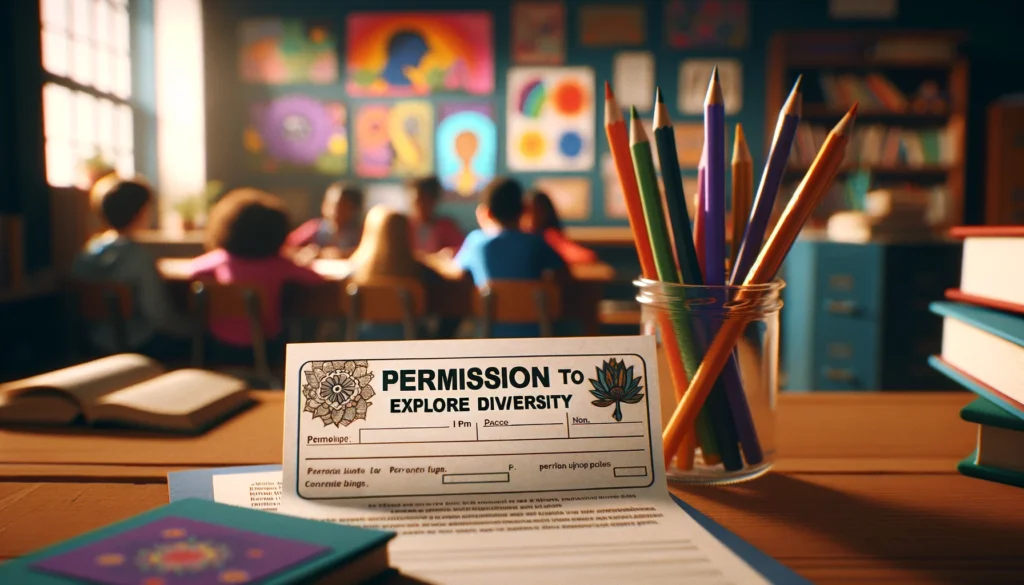
A Florida school’s permission slip policy for Black History Month ignites a fierce debate on educational rights and inclusivity
By Darius Spearman (africanelements)
Support African Elements at patreon.com/africanelements and hear recent news in a continuous playlist during your morning commute. Plus get early access to ad-free video content.
Introduction
The recent policy by a Florida school necessitating parental consent for children to engage in Black History Month activities has ignited a fervent discussion across the nation. Initially, this move mirrors the growing concern over educational content and the extent of parental control within schools. Importantly, it spotlights the delicate balance between fostering an inclusive curriculum and respecting parental rights. Consequently, the policy has drawn a spectrum of reactions from various stakeholders, ranging from approval to outright criticism.
Critics argue that such measures could inadvertently marginalize important historical narratives and undermine educational autonomy. Conversely, supporters claim it upholds parental rights to oversee their children’s education. Amidst this debate, the policy raises crucial questions about the role of education in shaping societal values and the future implications for teaching contentious subjects in schools.
The Policy in Detail
The Florida school’s policy introduces a requirement for parental consent for students to participate in Black History Month activities. This approach aims to involve parents more directly in their children’s education, especially regarding sensitive historical content. Critics, however, see this move as potentially restrictive, fearing it may limit students’ exposure to diverse perspectives (SOURCE: Black Enterprise).
Furthermore, the policy aligns with broader state educational mandates, reflecting a growing trend towards increased parental oversight over curriculum content. This development has sparked a debate about the balance between educational freedom and parental rights, with significant implications for how schools navigate the inclusion of racial and historical topics in their curricula (SOURCE: LGBTQ Nation).
Public Reaction
The public’s response to the Florida school’s policy has been diverse and vocal. On one side, some parents and community members express shock and concern, fearing the policy could segregate educational content. For example, one parent was “shocked” by the need for such a permission slip, underscoring a deep worry about the message it sends (SOURCE: Black Enterprise). On the other side, educational experts warn of the broader implications, suggesting the policy might lead to an uneven understanding of Black history among students. They argue it could create a generation misinformed about crucial aspects of their nation’s history (SOURCE: LGBTQ Nation).
This reaction showcases the complexity of balancing educational integrity with parental oversight, sparking a broader conversation about inclusivity and historical accuracy in school curricula.
Expert Insights on Educational Policy
Educational experts express deep concerns about the Florida school’s policy. They argue that such requirements might hinder an inclusive learning environment. For example, Marvin Dunn, a professor at Florida International University, emphasizes the risk of creating a generation misinformed about Black history due to unequal learning opportunities (SOURCE: Black Enterprise). He contends that parental decision-making in educational content can lead to a fragmented understanding among students.
Additionally, critics argue this move aligns with broader educational trends in Florida that caution teachers about discussing certain topics, potentially limiting academic freedom. Steve Gallon, a Miami-Dade School Board Member, suggests the policy reflects compliance with state mandates rather than educational best practices (SOURCE: Business Insider).
“The intent of the DeSantis attack on education is to make schools more cautious, to make teachers more cautious about what they teach, and it’s working,” Dunn explains, highlighting the serious consequences of such policies on educational content (SOURCE: Black Enterprise).
Legal and Ethical Considerations
The policy aligns with state mandates requiring parental consent for certain educational content. However, it raises ethical questions about the role of education in fostering an inclusive understanding of history and the potential consequences of segregating educational content based on parental consent.
Experts voice concerns over the Florida school’s policy requiring permission slips for Black History Month activities. They argue this could lead to unequal learning opportunities.
“When parents decide on educational content about Black history, it might create a generation misinformed about the subject,” states an educational expert (SOURCE: Black Enterprise).
Furthermore, critics see this policy as part of a larger, worrying trend in education. They believe it aims to make schools and teachers more cautious about the topics they cover, especially regarding racial history. This approach, experts warn, risks not just banning books but ideas themselves, potentially undermining educational freedom and ethical teaching practices.
Conclusion
The Florida school’s policy on Black History Month permission slips has sparked a vital debate. It underscores the struggle to balance educational inclusivity with parental involvement. This policy, while aiming to respect parental rights, raises concerns about segregating educational content based on parental consent. As the discussion progresses, it highlights the broader challenges faced in ensuring education remains inclusive and reflective of diverse histories. This scenario calls for a careful examination of how educational policies can best serve all stakeholders in a diverse society.
About the author:
Darius Spearman is a Professor of Black Studies at San Diego City College, where he has been pursuing his love of teaching since 2007. He is the author of several books, including Between The Color Lines: A History of African Americans on the California Frontier Through 1890. See more black news and history content at africanelements.org.
